Your cart is currently empty!
By
John Abraham
| UPDATED

Grandparents often leave their biggest mark not through grand gestures, but through the quiet, everyday moments that stick in a child’s heart. It’s the way you listen to their wild stories, the smell of your kitchen, or the way you cheer the loudest at their smallest victories. These little choices shape the way your grandkids see you — not just as family, but as a source of trust, warmth, and joy. With a few intentional changes, you can make your bond even stronger and leave memories they’ll carry into adulthood.
1. Show Genuine Interest in Their Lives

Ask about their school, hobbies, or friends, and listen actively. When grandchildren feel you care about their day-to-day experiences, it builds a bridge of trust and connection. Your curiosity conveys that their thoughts and feelings matter, creating a safe space for conversation. Over time, these small moments of attention shape how they see you—not just as a relative, but as someone who values, understands, and supports their unique journey through childhood and adolescence.
2. Celebrate Their Achievements, Big or Small

Recognize every success, from acing a test to finishing a drawing. Celebrations, no matter the scale, reinforce confidence and self-worth. By being their cheerleader, you foster motivation and positivity. Grandchildren remember those who acknowledged their efforts, not just outcomes. This attention shows that you notice their growth, effort, and creativity. Your enthusiasm becomes a source of encouragement, leaving an imprint that they carry into adulthood.
3. Share Family Traditions
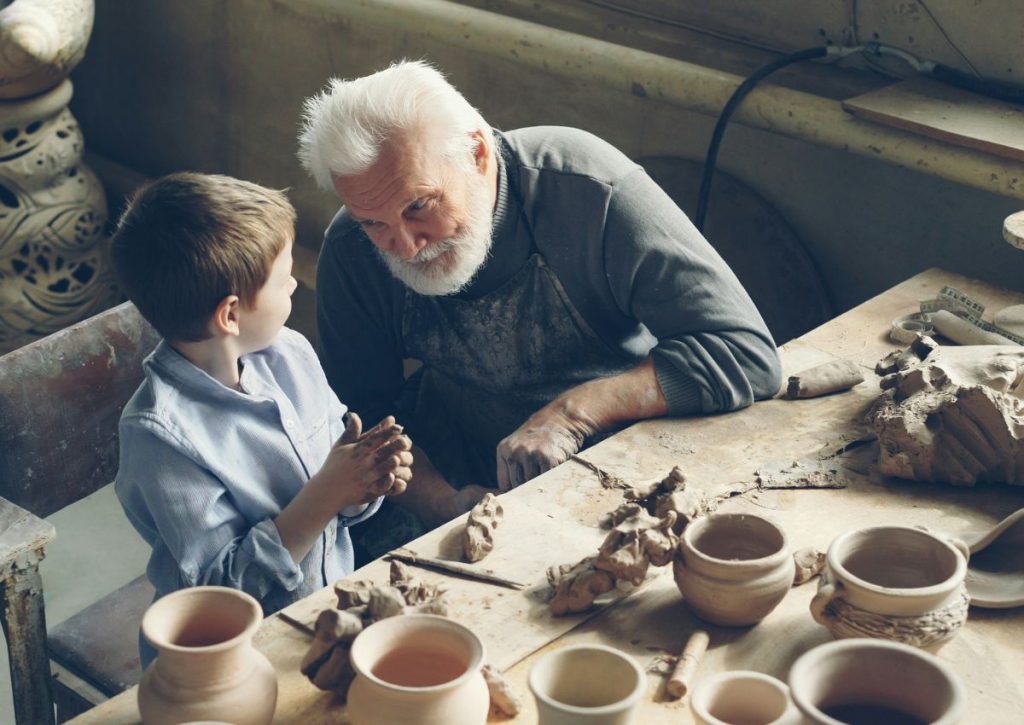
Pass down rituals, recipes, or stories that reflect your family’s history. Traditions anchor children in identity, providing continuity and connection. Grandchildren often treasure these shared moments as links to the past. Participating together—whether baking a holiday treat or telling tales of previous generations—cements emotional bonds. Your role as the keeper of family heritage helps them associate you with stability, warmth, and the rich tapestry of their lineage.
4. Create Special One-on-One Time

Even brief, dedicated moments matter. Whether it’s reading together, walking in the park, or sharing a meal, one-on-one time signals importance. These personal interactions allow deeper conversations and stronger connections. Grandchildren notice when they have undivided attention, fostering trust and intimacy. By consistently carving out these moments, you become someone they rely on for attention, comfort, and guidance, leaving memories that outshine any material gift.
5. Encourage Curiosity and Questions
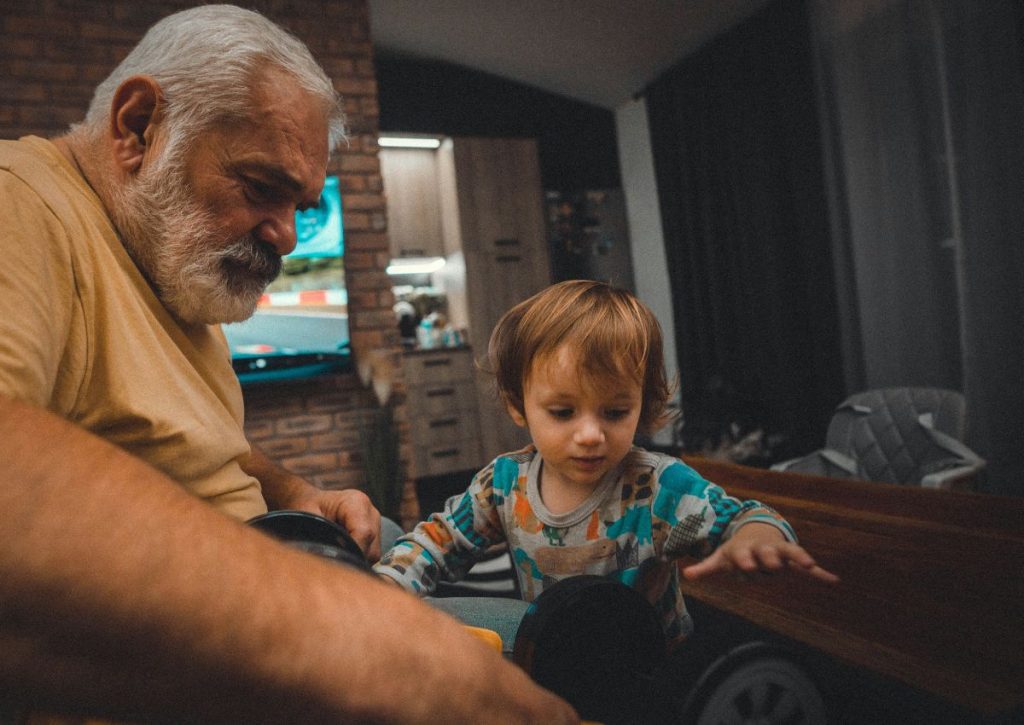
Respond to their questions thoughtfully, no matter how small or quirky. Curiosity is the gateway to learning, and your encouragement nurtures it. Answering with patience fosters critical thinking and a love of discovery. Grandchildren remember adults who treated their questions seriously, associating you with knowledge, wonder, and trustworthiness. By validating curiosity, you position yourself as a guide in their journey of understanding the world, making learning feel exciting and safe.
6. Model Respectful Communication
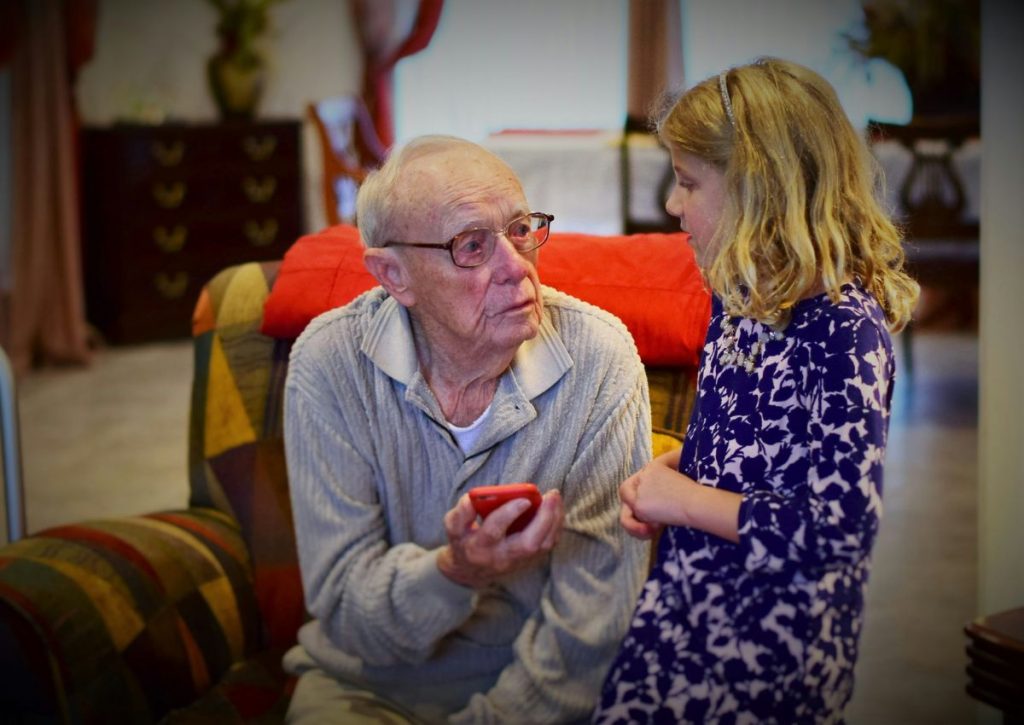
Show how to converse with politeness, honesty, and empathy. Children internalize your tone, body language, and patience. Demonstrating respectful communication teaches them to listen, articulate, and manage emotions. Grandchildren perceive you as a role model, someone who handles conflict and conversation with grace. These lessons extend beyond family interactions, shaping their friendships and school relationships, making your influence enduring in both their social and emotional development.
7. Introduce Them to New Experiences
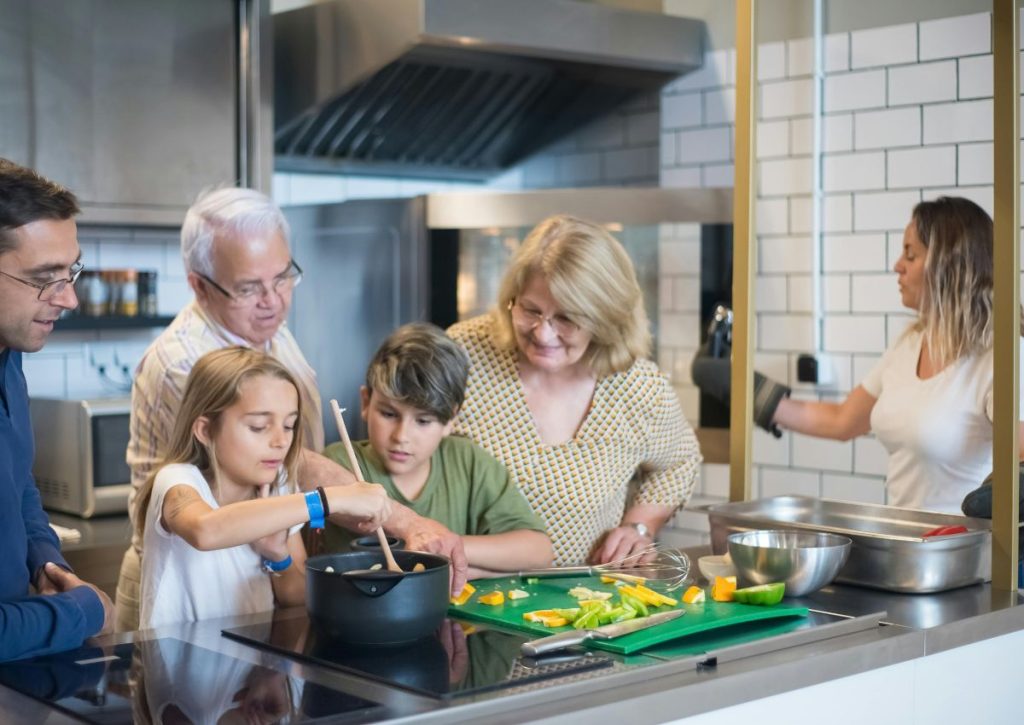
Expose them to books, art, science, or local events they wouldn’t encounter otherwise. Novel experiences spark curiosity and broaden horizons. By exploring new ideas together, you cultivate a sense of adventure and openness. Grandchildren remember the excitement of shared discovery, linking you with exploration and inspiration. Offering new experiences doesn’t just entertain—it builds skills, confidence, and the understanding that learning and curiosity are lifelong pursuits.
8. Be Playful and Lighthearted
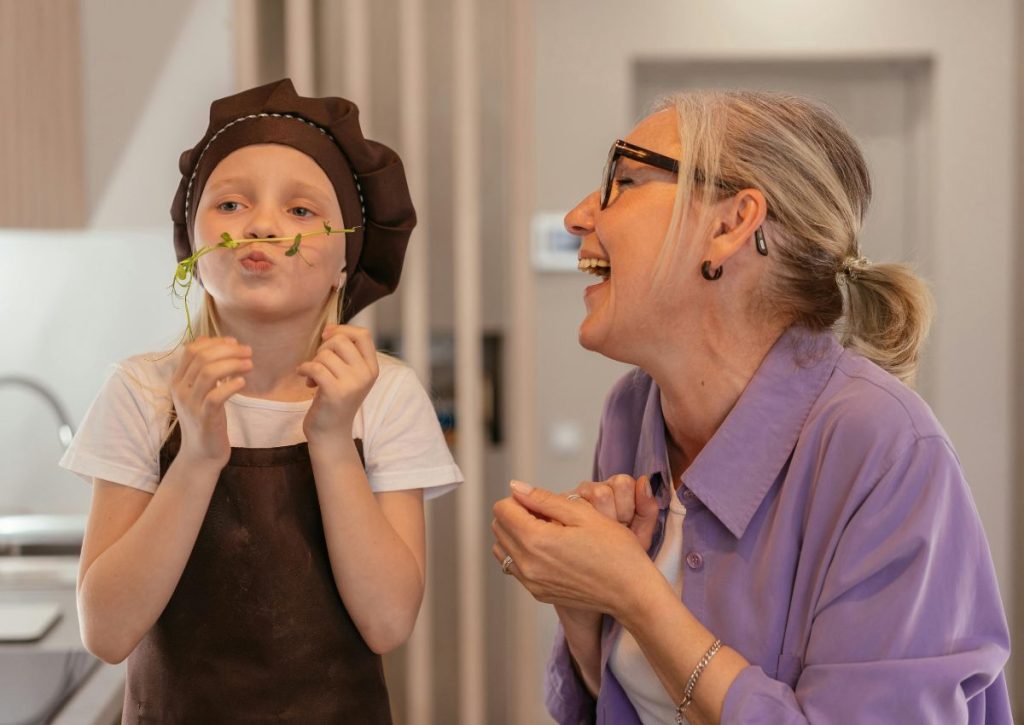
Engage in jokes, games, and silly moments. Playfulness strengthens bonds, reduces stress, and builds joy into your relationship. When grandchildren share laughter with you, they remember those moments as safe, fun, and affirming. Humor teaches flexibility, patience, and resilience, and your ability to embrace lightheartedness demonstrates warmth and relatability. By weaving play into everyday interactions, you become a figure of joy and comfort in their lives.
9. Offer Guidance, Not Dictation
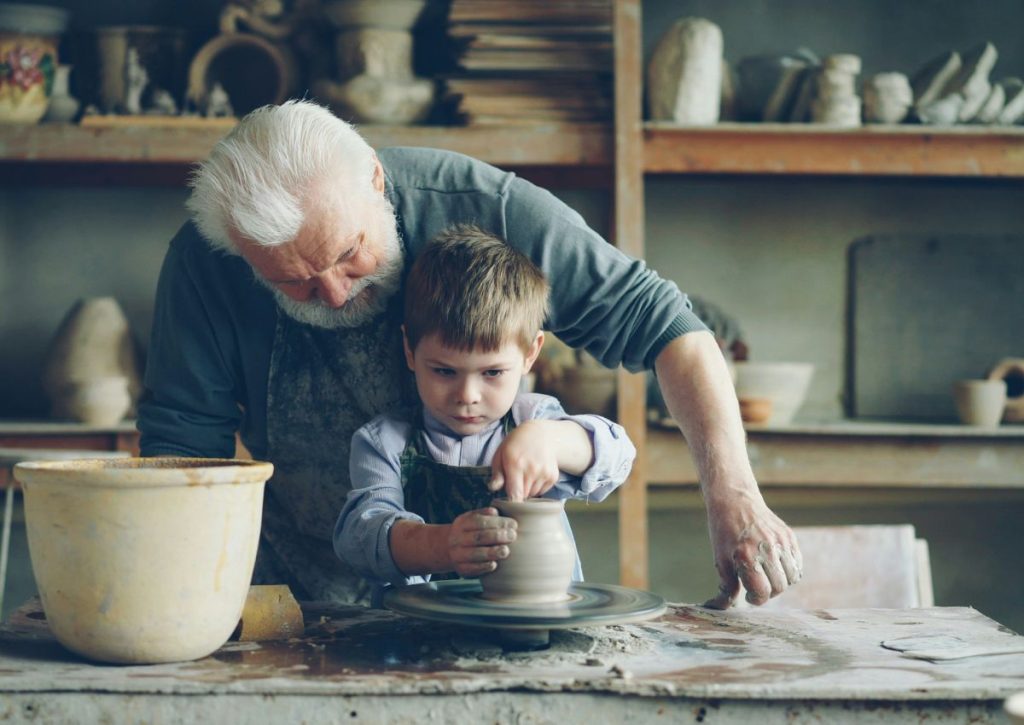
Instead of imposing rules, guide with wisdom and gentle advice. Children thrive when they feel autonomy alongside support. By providing perspective rather than commands, you cultivate trust, critical thinking, and confidence. Grandchildren see you as a mentor rather than an authority figure, someone whose advice is meaningful and approachable. This approach ensures your influence is lasting, remembered for its thoughtful guidance rather than strict control.
10. Respect Their Interests

Even if their hobbies differ from yours, show appreciation. Attend their games, watch their performances, and ask questions about their passions. Valuing their interests communicates acceptance and respect, reinforcing self-esteem. Grandchildren remember adults who embraced what excited them, associating you with support, encouragement, and open-mindedness. Your willingness to engage on their terms deepens connection and strengthens emotional bonds.
11. Create Memory-Making Rituals

Small recurring activities—like Sunday breakfasts, bedtime stories, or monthly outings—become treasured traditions. Rituals provide predictability and comfort while fostering intimacy. Grandchildren associate these repeated experiences with consistency and love. These shared rituals build lasting memories that define their perception of family closeness. By investing in simple, meaningful routines, you ensure your presence is remembered as integral and cherished in their lives.
12. Teach Them Gratitude
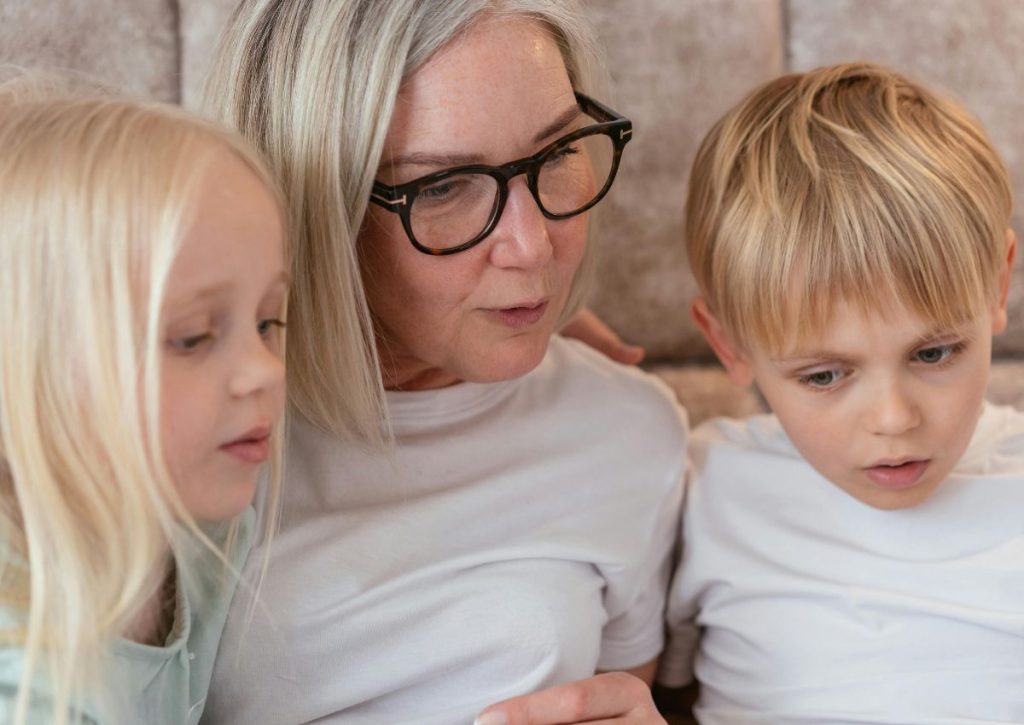
Encourage saying thank you, noticing small blessings, and helping others. Practicing gratitude develops empathy, perspective, and emotional intelligence. Through discussions, journaling, or modeling gratitude yourself, grandchildren learn to appreciate life’s positives. They’ll associate you with kindness, reflection, and meaningful life lessons. Teaching gratitude not only strengthens their character but also links your memory with a sense of warmth, generosity, and moral grounding.
13. Show Patience During Mistakes
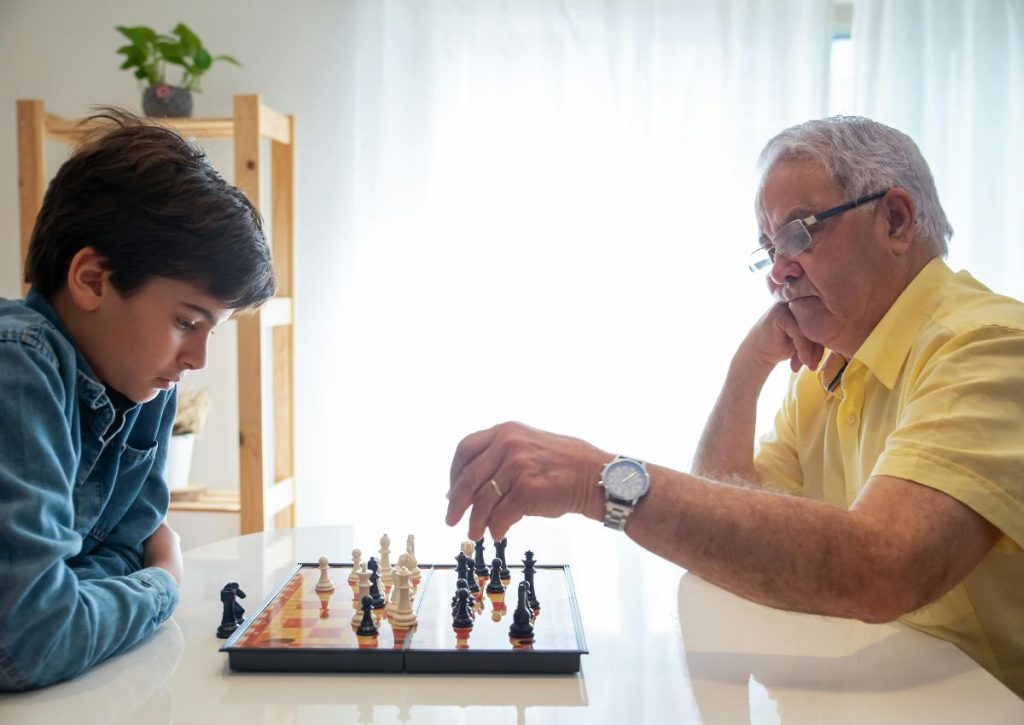
Children learn by trial and error, and your patience is pivotal. Avoid scolding; instead, offer guidance and encouragement. Demonstrating calmness fosters emotional security, resilience, and problem-solving skills. Grandchildren remember adults who handled mistakes constructively, associating you with support and understanding rather than judgment. Your approach transforms errors into learning opportunities, creating a nurturing and enduring influence.
14. Encourage Reading and Storytelling

Reading together or telling stories fosters imagination, vocabulary, and cognitive development. Shared stories spark conversations, reflection, and emotional connection. Grandchildren associate you with adventure, learning, and curiosity. Beyond education, storytelling becomes a medium for values, humor, and family history, creating a lasting impression. By nurturing a love of stories, you weave yourself into the narrative of their formative years.
15. Foster Emotional Expression
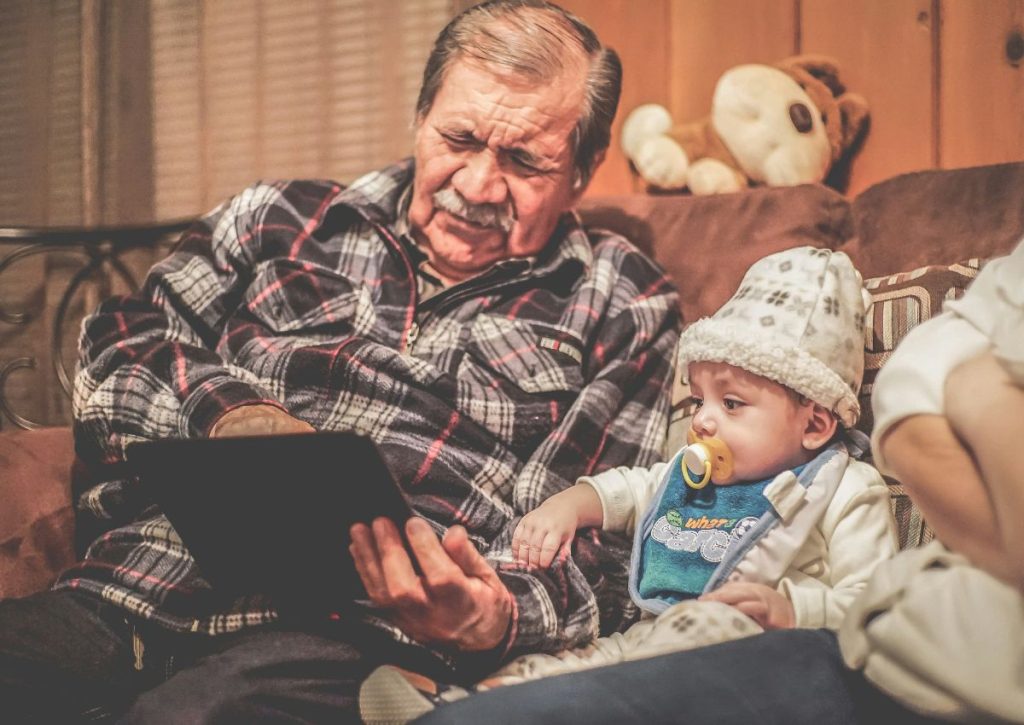
Allow grandchildren to express feelings openly without fear of judgment. Validate their emotions and provide coping tools for frustration, sadness, or excitement. Emotional literacy strengthens resilience, empathy, and self-awareness. Grandchildren remember adults who understood and accepted them fully, associating you with safety and trust. By encouraging emotional expression, you position yourself as a supportive presence, one they can rely on to navigate both challenges and joys.
16. Teach Life Lessons Through Experience
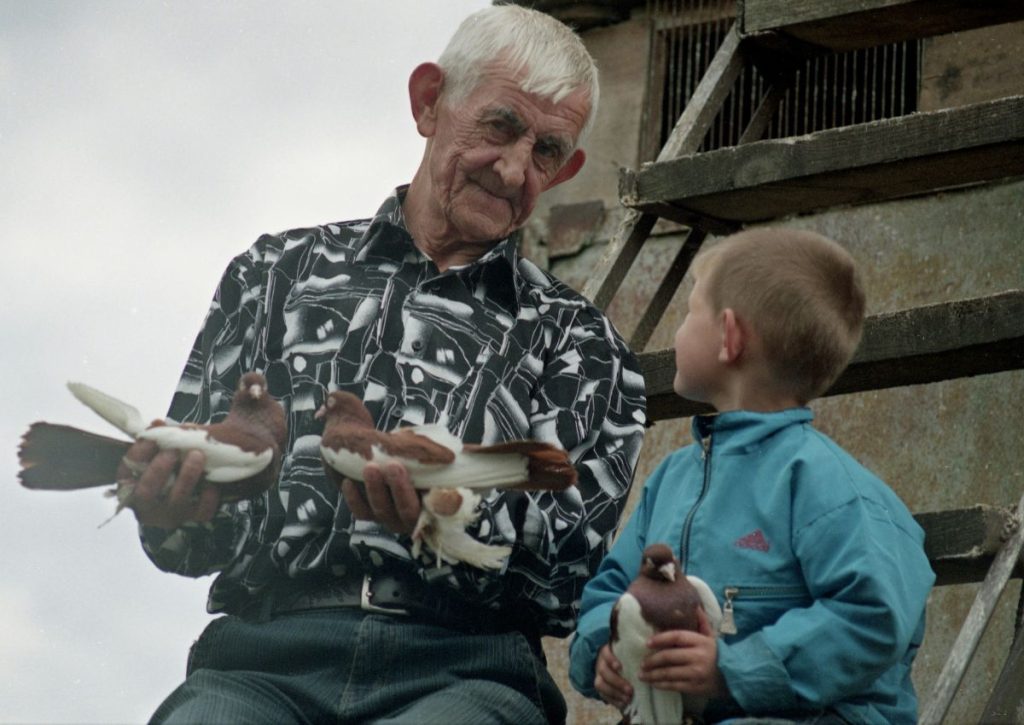
Instead of giving lectures, show lessons through shared activities. Cooking a meal together teaches patience, planning, and attention to detail. Gardening shows care, resilience, and the rewards of nurturing life. Even small tasks like organizing a bookshelf or fixing a bike offer lessons in responsibility and problem-solving. Experiencing lessons firsthand helps children internalize values more effectively, and they’ll come to see you as a practical, wise, and patient guide in life.
17. Respect Their Feelings

Children need to know their emotions are valid. Rather than dismissing frustration or excitement, acknowledge it: “I can see why that made you upset” or “You’re excited—that’s great!” Respecting their feelings teaches emotional intelligence and self-awareness. When grandchildren feel safe expressing themselves, they learn to trust you deeply. They remember adults who honor their inner world, which makes you a pillar of support and empathy in their lives.
18. Let Humor Guide the Day

Laughter creates connection. Use playful jokes, silly voices, or lighthearted pranks to create joyful moments. Humor eases tension, encourages creativity, and makes interactions memorable. Children who share laughter with you associate your presence with fun and safety. They’ll remember the times they laughed until their stomachs hurt and see you as approachable, lively, and full of warmth—someone who can make ordinary days extraordinary.
19. Share Your Passions
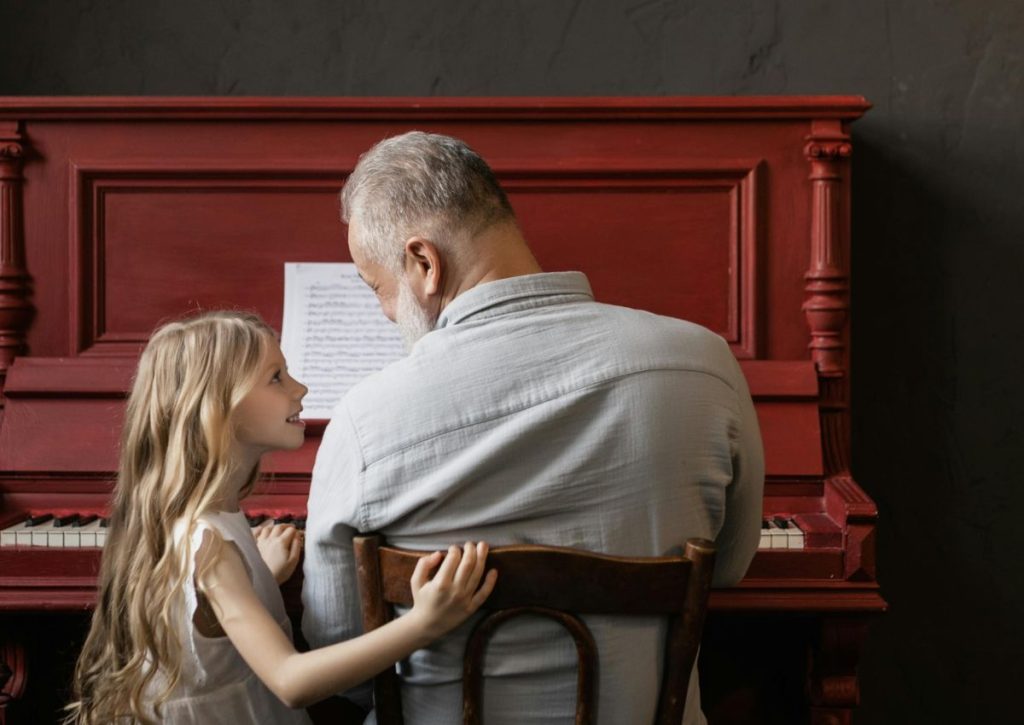
Invite your grandchildren into what excites you, whether it’s painting, birdwatching, reading, or cooking. Explaining why you love something conveys enthusiasm and authenticity. When they witness your genuine interest, they’re more likely to explore passions themselves. Sharing hobbies creates a bridge between generations, allowing them to see you as a multidimensional person. These experiences leave lasting memories of curiosity, joy, and connection.
20. Give Them Responsibility

Allow children to take charge of small, meaningful tasks. From feeding a pet to helping set the table or organizing a family game, responsibility fosters independence, competence, and confidence. Celebrate their achievements and gently guide mistakes as learning moments. Trusting them with responsibilities shows that you believe in their abilities, reinforcing a sense of self-worth and leaving them with admiration for your faith in them.
21. Remember Special Dates

Birthdays, school achievements, or personal milestones should never go unnoticed. A card, call, or visit on these dates demonstrates attentiveness and care. Remembering and celebrating these events makes grandchildren feel cherished and important. Your thoughtfulness communicates that their lives and achievements matter to you, and over time, they’ll associate your presence with reliability, love, and celebration of who they are.
22. Create a Comfortable Space for Conversation
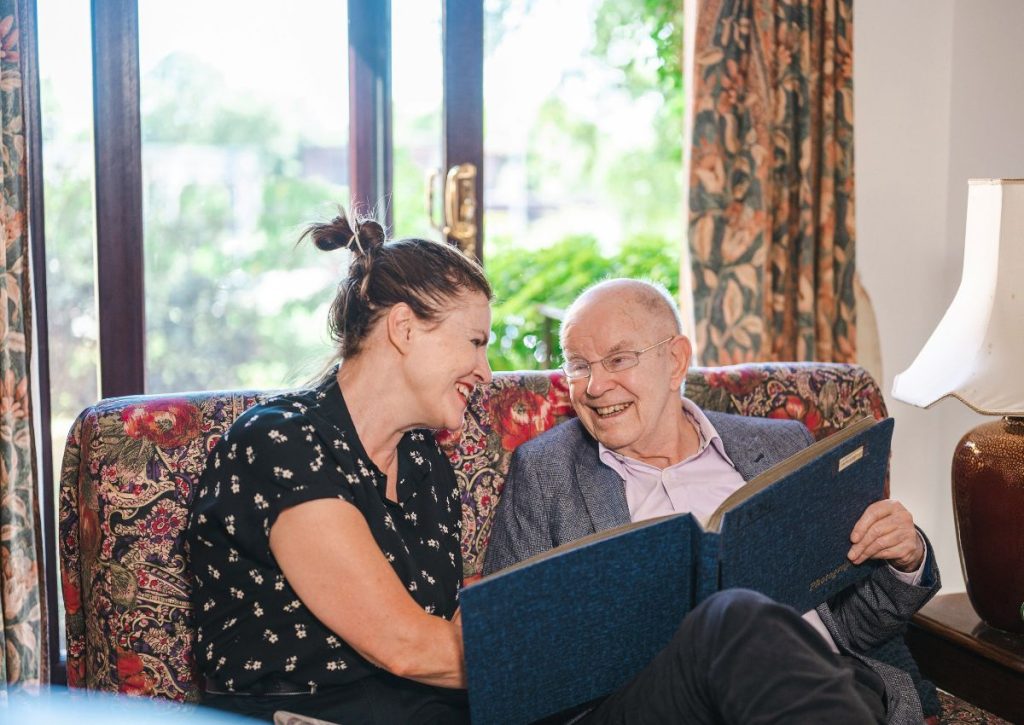
Encourage your grandchildren to speak openly by being approachable and patient. Avoid interrupting or immediately offering solutions. Instead, listen, ask questions, and validate their thoughts and feelings. A child who can share worries, joys, or random musings without fear of judgment develops trust and emotional security. By creating this safe space, you position yourself as a confidant, someone they can rely on, and a source of guidance and understanding.
23. Encourage Curiosity
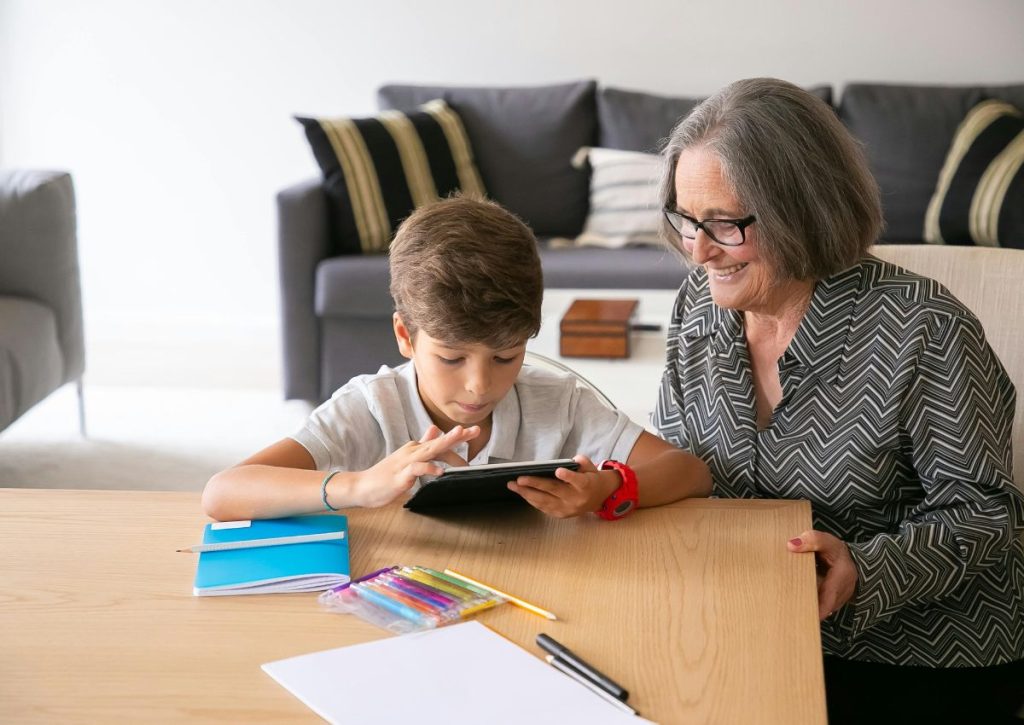
Answer questions with enthusiasm and explore new topics together, whether science experiments, history, or creative arts. Foster a sense of wonder rather than rushing to provide answers. When grandchildren feel encouraged to ask “why” or “how,” they develop critical thinking and a love of learning. Associating you with discovery, exploration, and intellectual adventure ensures they see you as not just a relative, but a mentor and partner in curiosity.
24. Show Gratitude

Model gratitude through words and actions. Thank them for help, participation, or even small gestures, and let them witness your appreciation for others. Gratitude teaches humility, perspective, and recognition of value in daily life. Children who observe consistent thankfulness learn to express it themselves. Your grandchildren will see you as a reflective, kind, and emotionally intelligent adult whose presence enriches the lives around you.
25. Be Consistent

Consistency builds trust. Whether it’s keeping promises, maintaining routines, or responding calmly during conflicts, children notice reliability. When they know what to expect from you, it creates a sense of stability and safety. Consistent behavior conveys that you are dependable, fair, and present in their lives. This reliability fosters admiration, respect, and a deep emotional bond, making your relationship one they can trust without hesitation.
26. Celebrate Their Creativity
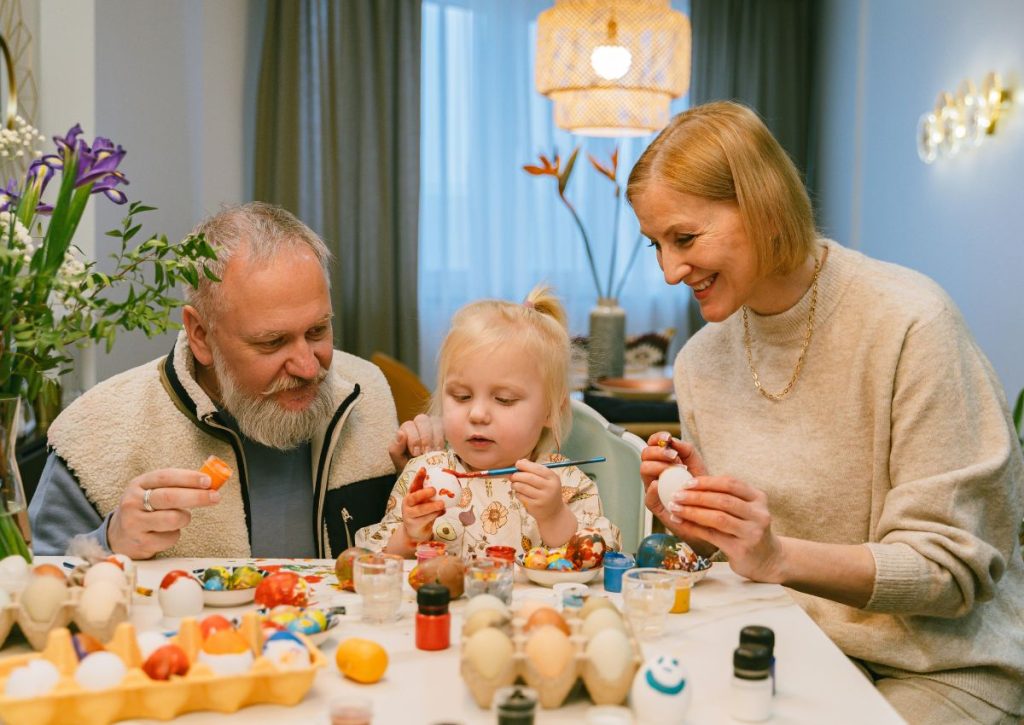
Encourage artistic expression in all forms—drawing, writing, music, or imaginative play. Praise effort, not just results, and participate when possible. By valuing their creativity, you show that unique ideas and self-expression matter. Grandchildren who feel supported in exploring their imagination develop confidence and originality. These moments of shared creativity become cherished memories, painting you as a mentor who inspires and believes in their limitless potential.
27. Teach Practical Skills

Hands-on lessons—like cooking, fixing small items, budgeting, or gardening—equip children with lifelong tools. Teaching practical skills reinforces independence, problem-solving, and resourcefulness. When grandchildren remember the tangible knowledge they gained from you, they associate your presence with wisdom and preparation for life’s challenges. These lessons extend beyond skills; they convey patience, mentorship, and a belief in their capability.
28. Share Stories About Yourself

Opening up about your own childhood, experiences, or mistakes humanizes you. It helps grandchildren see you as relatable and builds bridges across generations. Storytelling conveys values, resilience, and perspective in a way lessons cannot. Hearing about your life struggles and triumphs can inspire courage and curiosity. They’ll remember your stories as a mix of wisdom, humor, and authenticity—seeing you as someone with a rich, engaging past.
29. Practice Active Listening
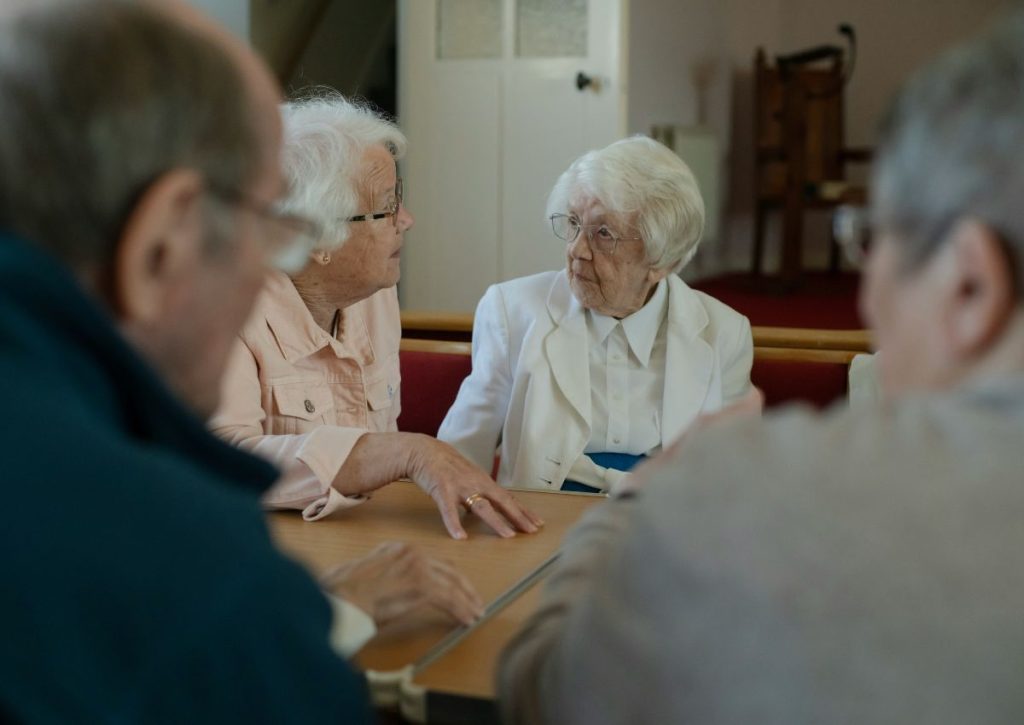
Truly listen without distractions. Make eye contact, nod, and respond thoughtfully to show understanding. Active listening validates their thoughts and feelings, helping children feel heard and valued. When grandchildren experience this level of attention, they develop trust and emotional security. You become someone they turn to for advice or comfort, knowing your responses come from care, thoughtfulness, and genuine engagement rather than habit.
30. Be a Role Model of Kindness
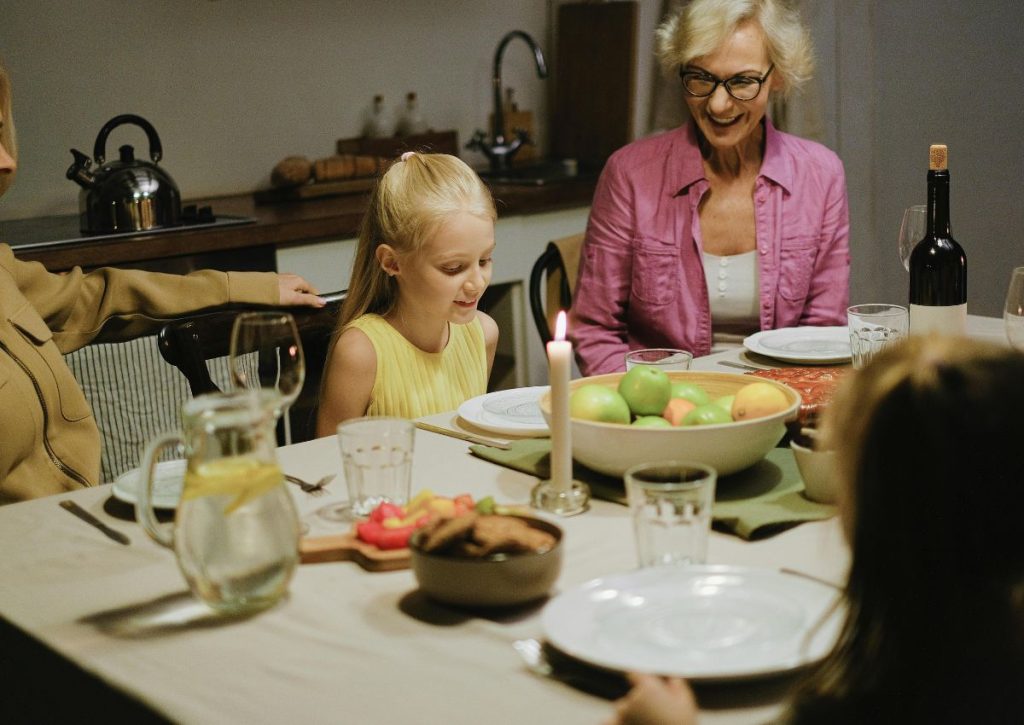
Children internalize behavior more from observation than instruction. Show empathy toward others, help neighbors, and handle conflicts with grace. Your actions demonstrate how to treat people with respect, compassion, and patience. Grandchildren who witness your kindness learn to emulate it and associate you with integrity and moral strength. Being a role model ensures they carry your influence long into adulthood, shaping not only their view of you but their view of the world.
31. Encourage Physical Activity
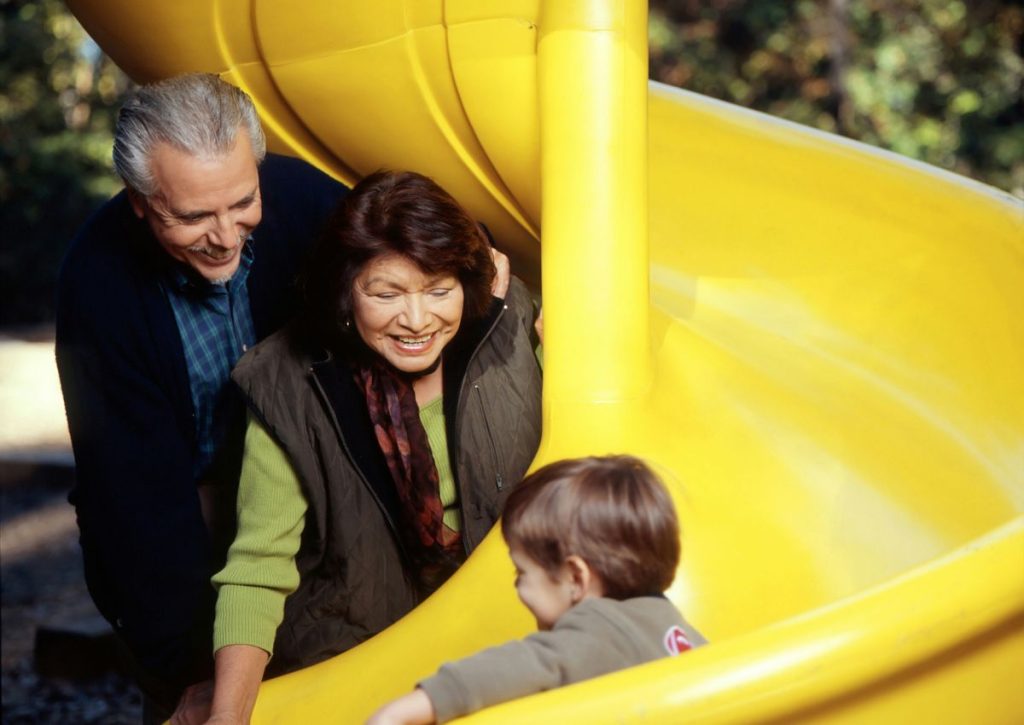
Participate in walks, sports, or playful activities together. Physical engagement boosts health, mood, and energy levels, while shared activity strengthens your bond. Grandchildren will remember the fun of exploring, playing, or just moving together. Physical activity is also a chance for subtle teaching moments about persistence, teamwork, and healthy habits. By being active with them, you leave an imprint of joy, vitality, and involvement in their daily lives.
32. Keep Your Promises
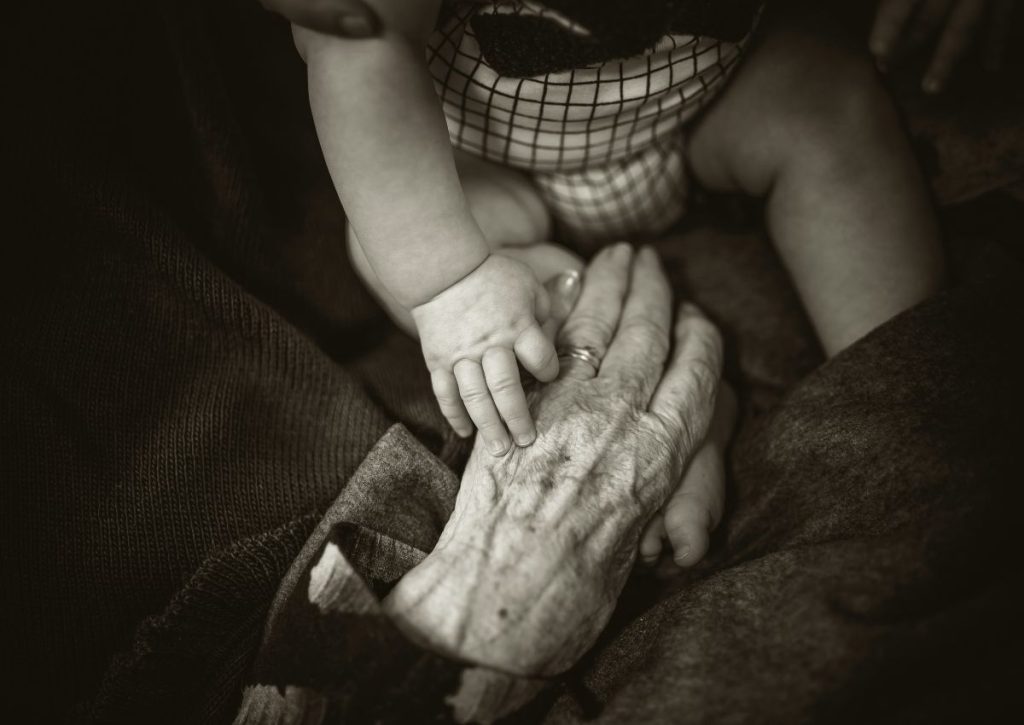
Even small commitments matter. If you promise a phone call, a trip to the park, or a special treat, follow through. Fulfilling promises teaches reliability and builds trust. Children remember adults who keep their word—they see you as dependable and caring. Breaking promises, even unintentionally, can erode confidence and admiration. By consistently honoring your commitments, you reinforce that your grandchildren can count on you, deepening respect and emotional connection.
33. Introduce Them to Nature
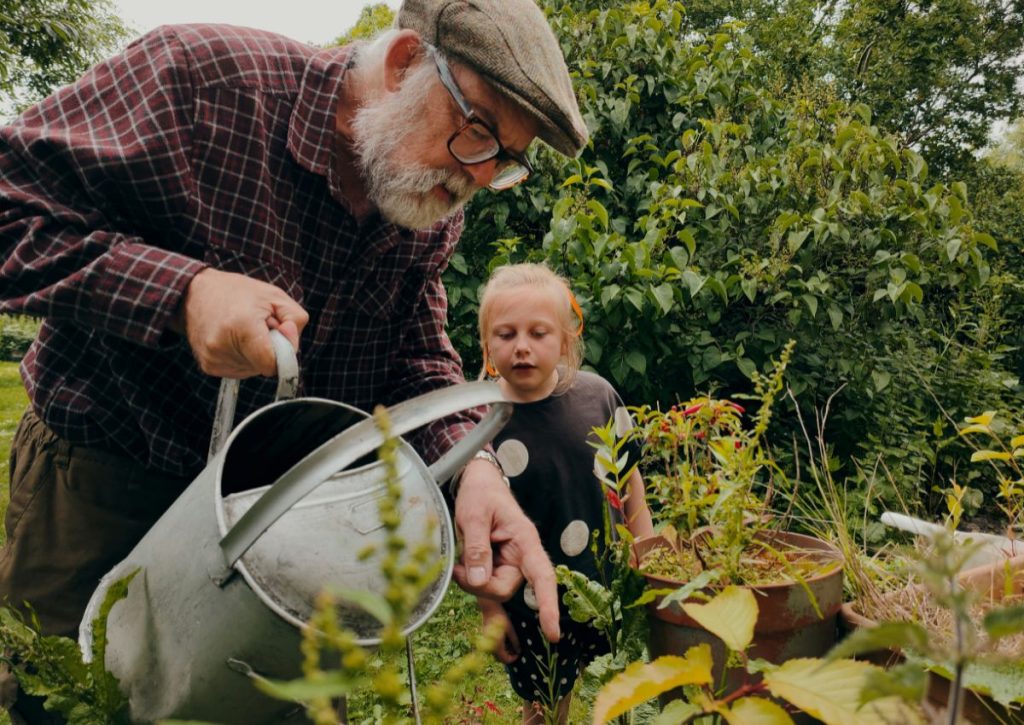
Exploring parks, forests, or beaches together encourages curiosity, calmness, and appreciation for the environment. Nature walks can become interactive lessons on wildlife, weather, and ecosystems, sparking learning and awe. Grandchildren often remember these moments as magical adventures, associating you with exploration and wonder. Introducing them to nature also provides mental space for reflection and conversation, creating lasting bonds rooted in shared discovery.
34. Teach the Value of Patience

Life often requires waiting and perseverance. Through activities like baking, gardening, or even crafting, demonstrate that good things take time. Encourage reflection and calmness during moments of frustration. Children learn resilience and delayed gratification, skills that benefit them for a lifetime. By modeling patience, you help grandchildren see you as steady, composed, and thoughtful—someone who guides them through life’s challenges with wisdom and understanding.
35. Offer Encouragement, Not Pressure
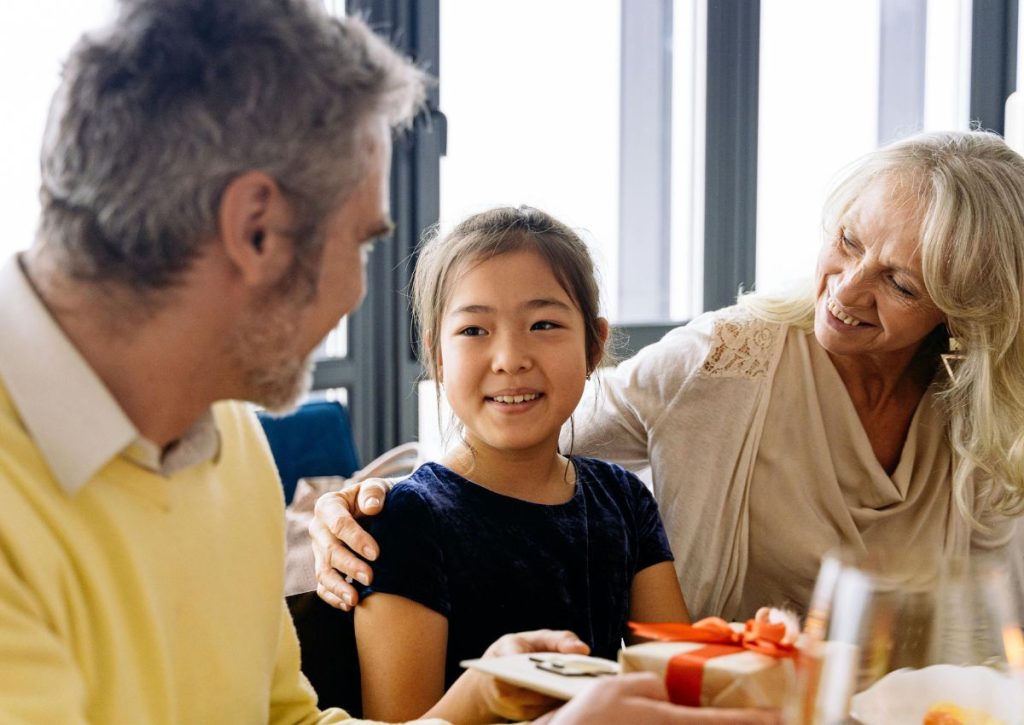
Focus on effort and growth rather than results or perfection. Celebrate achievements, acknowledge setbacks, and remind them of their potential. Avoid comparisons or undue pressure. This approach nurtures self-esteem, confidence, and a love of learning. Grandchildren associate you with unconditional support and motivation, seeing you as a source of inspiration rather than criticism. Your encouragement becomes a cornerstone of their emotional and personal development.
36. Leave a Legacy of Love

Beyond lessons, games, or stories, the most enduring gift is your consistent love. Whether through small daily gestures or major celebrations, show that your care is unwavering. A legacy of love teaches values, strengthens bonds, and creates a deep emotional imprint that lasts across generations. Your grandchildren will remember not just the moments, but the warmth, presence, and acceptance you provided—a lasting reflection of the person you are in their eyes.

